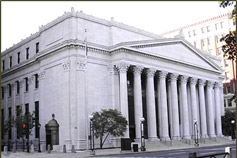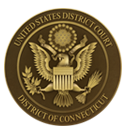United States Magistrate Judge for the District of Connecticut
Staff Information

RICHARD C. LEE UNITED STATES COURTHOUSE
141 Church Street
New Haven, Connecticut 06510
Location: Courtroom 5
Consent and Reference of a Civil Action to a Magistrate Judge
What is a Magistrate Judge?
